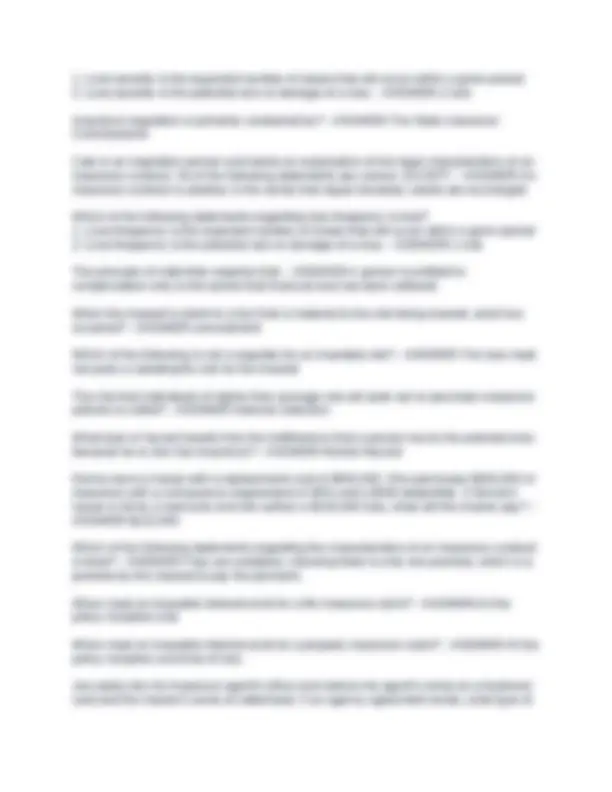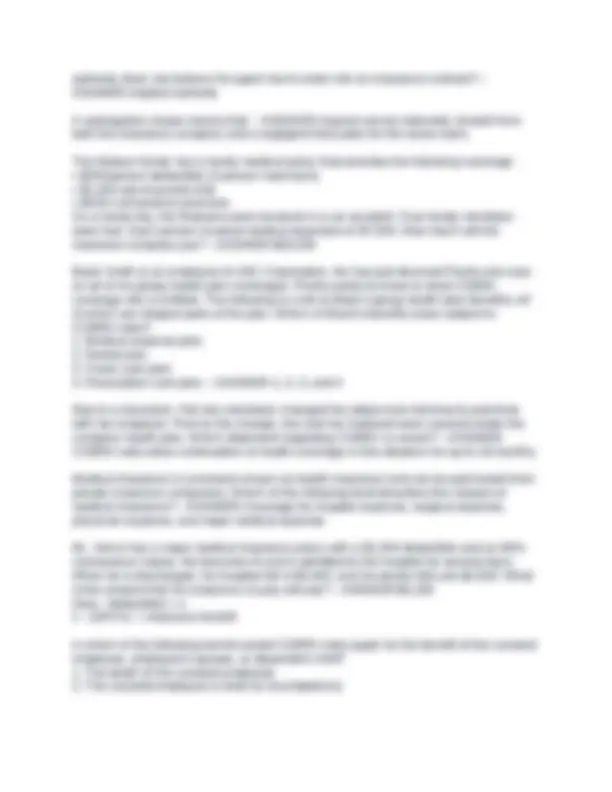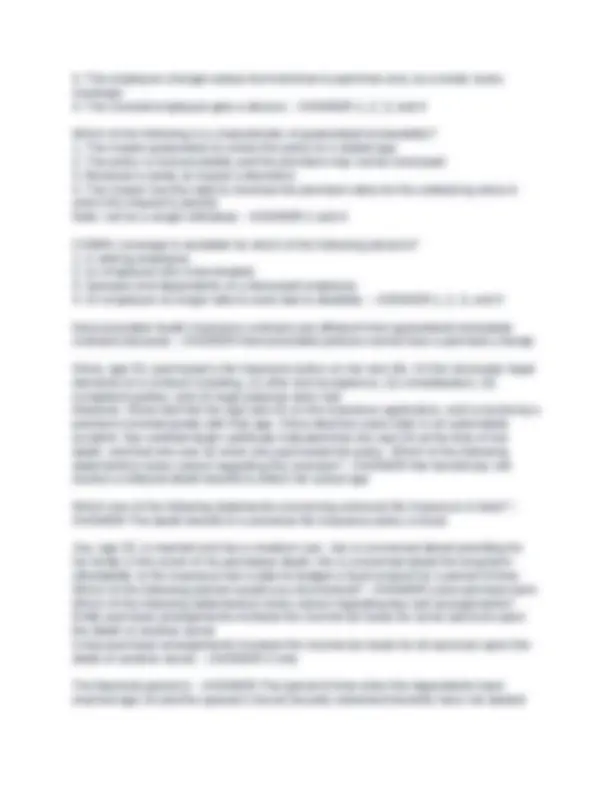





Study with the several resources on Docsity

Earn points by helping other students or get them with a premium plan


Prepare for your exams
Study with the several resources on Docsity

Earn points to download
Earn points by helping other students or get them with a premium plan
Community
Ask the community for help and clear up your study doubts
Discover the best universities in your country according to Docsity users
Free resources
Download our free guides on studying techniques, anxiety management strategies, and thesis advice from Docsity tutors
CFP Insurance Exam Questions with Verified Solutions
Typology: Exams
1 / 6

This page cannot be seen from the preview
Don't miss anything!




perils - ANSWER-the actual cause of a loss (fire, wind, burglary) hazard - ANSWER-a condition that increases the likelihood of a loss occurring (moral, morale, physical hazard) moral hazard - ANSWER-character flaw such as dishonesty morale - ANSWER-indifference created because the person is insured physical hazard - ANSWER-condition that increases the likelihood of a peril due to the nature of the physical environment elements of a valid contract - ANSWER-mutual consent, offer and acceptance, performance or delivery, lawful purpose, legal competency of all parties principle of indemnity - ANSWER-the insured is only entitled to compensation to the extent of the insured's financial loss property and liability insurance insurable interest - ANSWER-insured must have an insurable interest at the time of policy inception and at the time of loss life insurance insurable interest - ANSWER-only needs insurable interest at the time of policy inception underwriting - ANSWER-underwriting is the process of classifying applicants into risk pools, selecting insureds and assigning a premium agents - ANSWER-legal representatives of an insurer and act on behalf of an insurer brokers - ANSWER-legal representatives of an insured and act in the best interest of the insured deductibles - ANSWER-amount insured pays before benefits start copayments - ANSWER-in addition or substitutes to deductibles, common with health insurance coinsurance - ANSWER-cost sharing between insured and insurer
property coinsurance - ANSWER-amount insurer pays = (amount of insurance carried / amount of insurance required) * covered loss - deductible replacement cost - ANSWER-current cost of replacing property with new materials of like kind actual cash value - ANSWER-replacement cost less depreciation agreed upon value - ANSWER-determined jointly by insured and insurer legislative branch - ANSWER-provides for licensing agents judicial branch - ANSWER-rules on constitutionality of laws passed by legislative branch executive or state insurance commissioner - ANSWER-administers, interprets and enforces insurance laws health insurance coinsurance - ANSWER-typically $500 deductible and insured is responsible for 20% of expenses above the deductible Affordable Care Act max out-of-pocket - ANSWER-individual: $8, family: $17, parties to a life insurance contract - ANSWER-insured, owner of policy, beneficiary the human life value approach - ANSWER-income less insured's expenditures the needs approach - ANSWER-estimate the cash needs that the family will require at and after the death of the insured the capitalized-earnings approach - ANSWER-like the human life value but no need to determine the work life expectancy because, if the investment returns are realized, the lump sum death benefit will yield enough earnings each year to provide the desired income for a perpetual period of time Which of the following is correct regarding a peril and hazard? - ANSWER-a peril is the proximate or actual cause of a loss Jennifer is applying for life insurance, with her two children as the beneficiary. Jennifer has always been told she looks young for her age and although she is 58, she stated that she is 28 on her life insurance application. What would the insurer be most likely to do if Jennifer's beneficiaries attempt to collect on the life insurance policy? - ANSWER- Recalculate the face value of the policy based on actual premiums paid Which of the following statements regarding loss severity is true?
authority does Joe believe his agent has to enter into an insurance contract? - ANSWER-Implied Authority A subrogation clause means that: - ANSWER-Insured cannot indemnify himself from both the insurance company and a negligent third party for the same claim. The Watson family has a family medical policy that provides the following coverage: